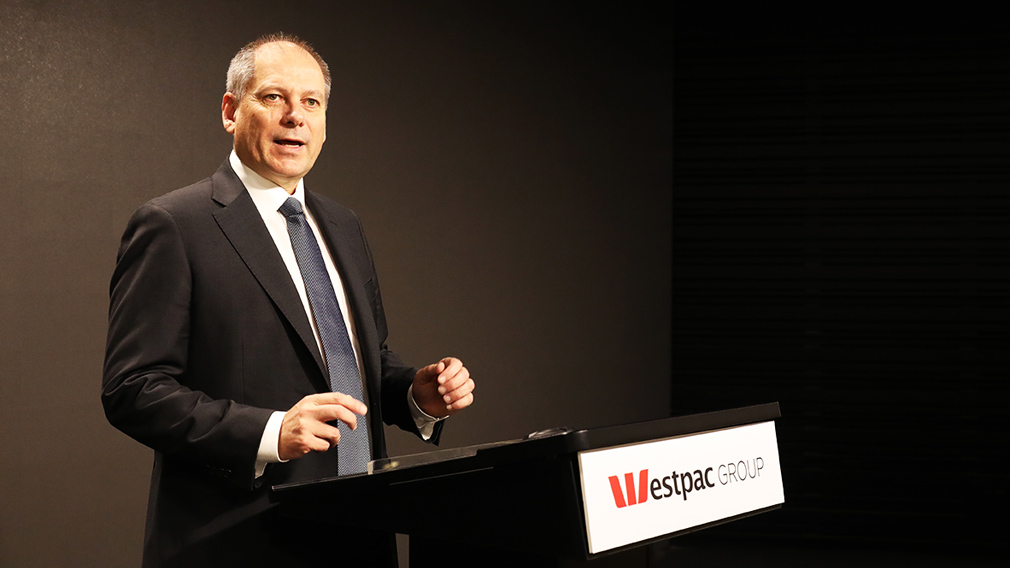Why proactively putting it right rewards all

Westpac CEO Brian Hartzer says while banks can be an easy political target, Westpac is taking proactive action to meet community standards. (Getty Images)
It’s no secret banks find themselves in a difficult public environment.
And yes, much of this is self-inflicted, through poorly designed past practices and incentives, inadequate responses to examples of customer mistreatment, and financial decisions that appear to favour banks rather than customers (and were poorly explained, at that). But there are other contributing factors as well – legacy resentment over the Global Financial Crisis, memories of aggressive bank practices during and after the 1990s recession, and the flow-on impact of new regulation on banks’ lending policies and cost structures.
Most fair-minded people would also recognise that banks are an easy political target, and – as we’ve seen in other countries – that the current fraught political environment means this can be used opportunistically with strong effect.
Regardless, the banking industry absolutely recognises the need to do better.
Both individually and collectively, we are well advanced on implementing policy changes and reforms that better align bank policies with customer interests, improve transparency, and provide an avenue for quick and independent review of issues when things go wrong. For example, at Westpac we have removed all product sales incentives for our tellers and personal bankers, appointed Adrian Ahern – a highly respected former senior lawyer – as our independent Customer Advocate, and with the ABA are updating and completely re-writing the Code of Banking Practice in plain English to make it more transparent and fair.
It’s steps like these – along with other concrete actions that are underway in partnership with our regulators – that will deliver a safer, fairer, more competitive, and transparent banking system.
Let me be clear: We at Westpac have nothing to hide. We accept we’re not perfect, and that we need to do better. That’s why we are reviewing our products, processes, and policies to ensure they serve customers’ best interests and meet today’s community standards: A program that internally we are calling “Getting it Right”. My instructions to our team are simple: where we find issues, we fix them. And if in the course of these reviews we find there has been an unacceptable impact on customers, then we will “Put it Right” for them.
This work has been underway for some time, and has already made a difference for our customers: For example, last year we reviewed our disclosures around certain Foreign Exchange fees on credit card purchases, after some customers who had been traveling told us that they hadn’t been expecting these particular fees. We reviewed our disclosure, agreed it wasn’t clear enough, and put it right – both by changing the disclosure and reimbursing the fees.
Another initiative we are trialling is greater flexibility for our front-line employees to resolve customer issues, called the “Empower Me Fund”. Under this program, any staff member who sees something that isn’t consistent with our Service Promise – for example, where an error has occurred, or a customer needs special assistance of some kind – is empowered to fix the issue, and I will fund it centrally.
We believe Australia deserves to have the very best financial system it can, and banks need to do a better job of showing the community how they benefit. Overwhelmingly, Australian banks are owned by the Australian public – either directly as shareholders, or through their super funds. In fact, 80 per cent of the industry’s profits go straight back into the economy as dividend payments, to support consumer spending, mortgage payments, and retirement – while the balance is retained as capital to support new lending to the economy.
And for Australian banks to do well, Australia needs to do well. It’s as simple as that.
A recession is something I never want to see the nation go through again. To avoid one will require real reform and a priority on forward thinking, not second-guessing the past. This is particularly true now, as the nation confronts economic challenges such as potentially higher interest rates, housing affordability, employment opportunities in rural Australia, an ageing population, and the impact of automation on jobs.
Developments in new technology – especially in data analysis and mobility – are changing the way nearly every industry works and how nearly every customer group expects to be served. New competitors are emerging, fragmenting and disrupting the business models of long-established businesses. And whole new classes of risk are emerging in privacy, cyber-security, and systems resilience – bringing both threats and opportunities for well-managed players.
Few industries feel these challenges more acutely than banking, where the rapid take-up of digital technology means that here at Westpac around half of our customers now bank primarily online, with mobile banking our most popular channel. In the next decade, I can see this increasing to over 80 per cent of our customers and 95 per cent of our transactions.
In this environment all businesses – Westpac included – need to keep innovating in order stay relevant and connected to our customers and our broader stakeholder groups. And while digital technology enables our businesses to generate more and more ‘content’, the challenge of finding and distributing that content to the right individuals has grown ever larger.
What we do know, however – particularly for an inherently complex business like banking – sound bites in the media just won’t cut it.
At Westpac, we’re acting now to get it right and put it right. It’s the right thing to do for our customers, for Westpac, and for Australia.


